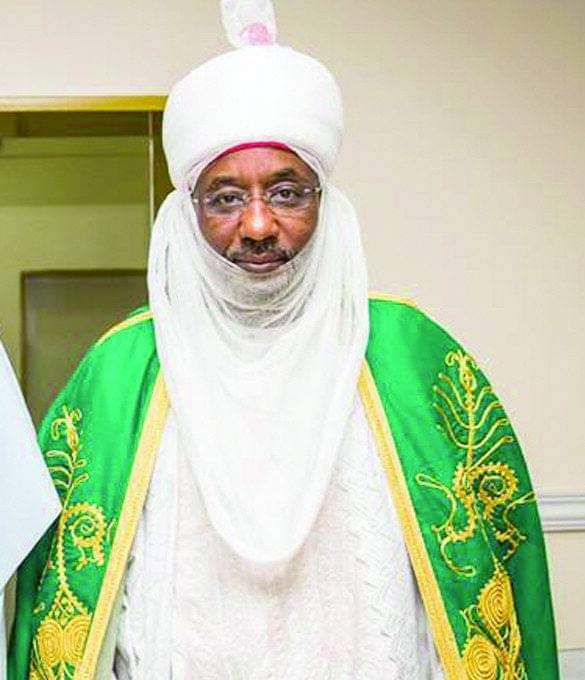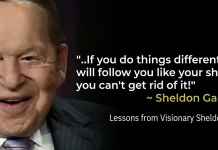The senior colleague who shared Tinubu’s one-year achievements in office in my last post also posted what Mr. Sanusi Lamido, a man I respect very much, had to say regarding the ongoing protest in Nigeria about ending bad governance (#EndBadGovernance).
I Will Be Unfair To God And Man If I Blame Tinubu For Nigerian’s Economic Hardship – Sanusi Lamido
- Says Nigeria Was Living On a Fake Lifestyle With Huge Debt From Foreign And Domestic Sources Since 2012
- Says Tinubu’s Decision To Remove Subsidy And Unify Exchange Rate Was Nigeria’s Only Surviving Strategy, No Borrowing To Run Government Anymore
The Former Emir of Kano, Muhammadu Sanusi, said it would be unfair for him to criticize President Bola Tinubu over the country’s economic hardship.
Mr. Sanusi, a former governor of the Central Bank of Nigeria (CBN), speaking during a virtual religious event on Sunday, said Nigerians who expected him to speak about the economic hardship deliberately wanted him to oppose the president.
He explained that he had to deviate from the religious theme of the event to remind Nigerians about his stance on the poorly managed economic policies of the immediate past administration of Muhammadu Buhari.
He said the Buhari administration ignored his advice on how to take Nigeria out of its economic woes.
Mr. Sanusi said economists with a fair sense of reasoning know that the current administration has made the right decision (fuel subsidy removal) to save Nigeria from the bondage of debts incurred by the past administration.
I have been, over the years, talking about the pending crisis ahead of the current economic hardship. Any economist who has studied monetary policy in the last eight years knows that Nigerians would fall into this difficult situation.
The difficult situation Nigerians are facing is just the beginning (if the right decisions are not made) because Nigeria is not exceptional; such situations happened in Germany, Zimbabwe, Uganda, and Venezuela.
The previous administration was adamant about our appeals for corrective measures (on economic policy). I have said in the presence of the now sitting president in Kaduna state, any politician who tells you that things will be easy, don’t vote for him because he is lying. People merely dismissed my advisory as a political statement.
If I am to be fair and just to President Bola Tinubu, he is not to blame for the current hardship; for eight years, we were living on a fake lifestyle with huge debt from foreign and domestic sources. The Central Bank of Nigeria owes over ₦30 trillion, resulting in debt service surpassing 100 percent.
I can’t join other Nigerians in criticizing Tinubu on the current economic hardship, and I am not saying he is a saint free from wrongdoing, but in this current economic situation, President Tinubu is not to be blamed. I will also speak if I see any wrong economic policy from the Tinubu administration in the future.
It’s an injustice for anyone to blame the Tinubu administration for the current economic hardship because there is no other alternative than the removal of the fuel subsidy. After all, Nigeria cannot even afford to pay the subsidy.
(In the last eight years), the Central Bank continued to print more money, and the Naira continued to depreciate. There is too much naira in circulation because the CBN is printing the currency without restraint.
The economy was poorly managed, and they were not willing to take advice; in the last eight years, apart from sycophancy, nothing has been done. Those sycophants are the ones buying the dollar at the rate of ₦400 and selling it at the rate of ₦600 to ₦700.
“A boy who has no record of service has a private jet and owns houses in Dubai and England just because he is buying dollars at one rate and selling them at another,” Mr. Sanusi said.
He said everything in Nigeria in the last eight years has been done on debt, lamenting that no country can survive under such economic policy.
I can only plead with the people to endure the hardship, and those who have the means to help the downtrodden should do so.
I am also pleading with commoners to live according to their earnings; we must not peg our lives above our earnings in this difficult situation where people are looking for what to eat,” the former Kano Emir said.
Here is my response to my senior colleague, as I agree with what Mr. Sanusi has said:
This man is right. He is a very sensible and honorable person, and I applaud him for that.
I also didn’t solely blame Tinubu in my last post; I just highlighted some important metrics. No government can solve all our problems; they can only try to improve things.
Yes, Nigerians need to endure the hardship. The common people should live according to their earnings, and those who have the means to help the downtrodden should do so.
But the question is, is the government also ready to curb excessive and superfluous expenditure and stop excessive Naira printing (inflation) and excessive dollar borrowing (debt)? Is the government ready to make sacrifices as well?
From what I’m seeing, I don’t think so. If things continue the way they are, we will soon face excessive taxation of Nigerians to meet increasing government expenditure.
I understand it’s not an easy feat to cut government expenditure, as it will affect a lot of people in the short term with job losses and slow economic growth/activities.
However, cutting excessive and superfluous expenditures is important. Short-term pain, long-term progress.
For instance, the Burkina Faso government bought 400 tractors, 710 motor pumps, and has nearly completed an $8,000,000 tomato processing plant to reduce tomato wastage. In contrast, the Nigerian government bought 107 Toyota Land Cruisers and 358 Prado Jeeps for its senators/House of Representatives members and recently completed a $12,000,000 Vice President Villa.
Burkina Faso: Invested in practical infrastructure to enhance agricultural efficiency and reduce waste, such as tractors and a tomato processing plant. This suggests a focus on long-term economic benefits and productivity.
Nigeria: Spent on luxury vehicles for officials and an expensive residence for the Vice President. This implies a focus on the immediate comforts of officials rather than on broader economic development.
Nigeria needs to focus on expenditures that will benefit the masses in the long term and for the economic future, rather than expenditures that benefit only a select few now.
A real father shouldn’t be eating lavishly while his family members starve. Either the whole family eats minimally or they suffer for a better future. Only a fake father would do otherwise.
I’m not saying our Senators and House of Representatives members should sacrifice their lives by suffering and not enjoying a good lifestyle at all. No.
They should only sacrifice immediate personal benefits now, and as things change, they should be compensated. Steady/more win for the nation, steady/more compensation for them.
But what do I know? Not much, per se, as I didn’t study economics abroad at Stanford, Harvard, or Cambridge.
But I know that if the government doesn’t change and sacrifice for the short term as Nigerians are currently doing, and instead continues with excessive and superfluous expenditure,
They will only continue to expand the economy (with excessive Naira printing, dollar debt, and taxation) and contract the economy when they start paying back the debt and inflation is at its peak.
That’s a boom and burst of the economy due to debt and inflation—long periods of enjoyment (expansion) followed by long periods of suffering (contraction).
In the end, the politicians, bankers, and the judiciary who back them will own everything, and the average Nigerian will own nothing when the bubble of excessive inflation and debt bursts.
So what can the average Nigerian do if things continue as they are? I really don’t know much, other than focusing on things that are outside of government control.
Thank you.
In my next article, I will share various things Nigerians can focus on that are outside of the government’s control.
Until then, stay blessed and focus on what you can control, like improving yourself for others.
Bye!
Discover more from 9jacashflow.com
Subscribe to get the latest posts sent to your email.






